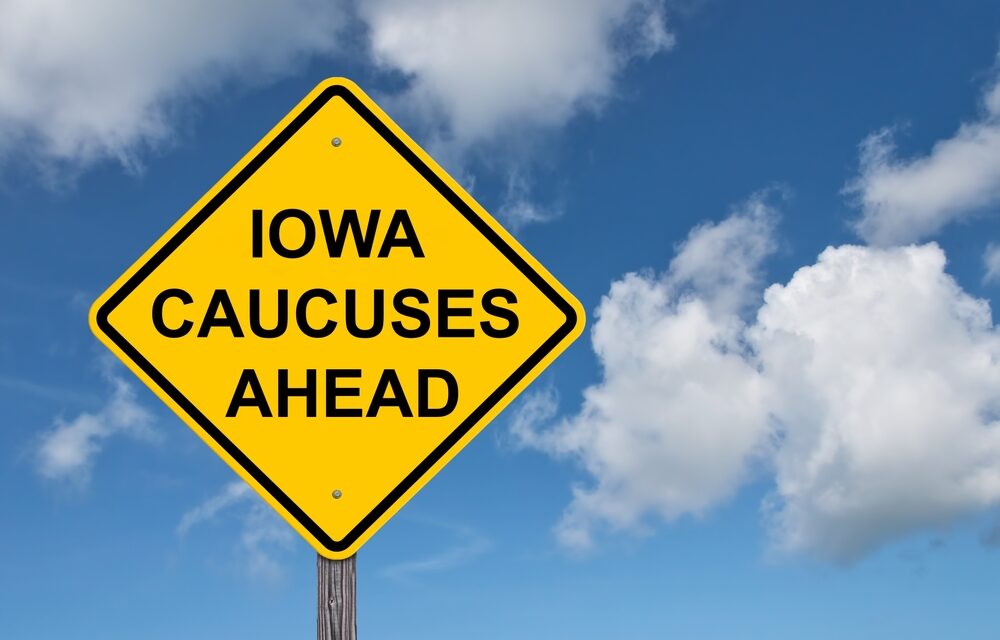Iowa Causes are Tuesday, Will You be Watching?
With the Iowa caucuses heating up the 2024 presidential race, the personal finance website WalletHub compared Iowa’s demographic characteristics and public opinions against that of the U.S. to answer: How Closely Does Iowa Resemble the U.S.? Its data set of 22 key measures includes sociodemographic, economic, educational and religious metrics as well as public stances on certain issues.
Key Findings
- 63.6% of Iowa-caucus winners have won the Democratic Party nomination and 44.4% the Republican Party nomination. The Iowa caucuses, therefore, are a much better predictor of advancement for Democrats than for Republicans.
- Iowa least resembles the U.S. in terms of race, with a 50.00 percent difference; religious composition, with a 74.52 percent difference; wealth gap, with a 76.41 percent difference; and employment by industry, with an 80.30 percent difference.
- Iowa most resembles the U.S. in terms of mean work hours, with a 99.48 percent similarity; unemployment rate, with a 99.10 percent similarity; school enrollment, with a 99.02 percent similarity; and importance of religion in one’s life, with a 99.00 percent similarity.
“The Iowa caucus is the first stop on the road to presidential nominations, but a victory here by no means guarantees the ultimate winner,” said Cassandra Happe, WalletHub Analyst. “Interestingly, although Iowa’s demographics are more in line with those of Republicans than those of Democrats, the state’s results are actually significantly better at predicting the Democratic nominee.”
Expert Commentary
Does it make sense to have Iowa be the first primary contest given that its demographic and economic profile is very different from the national electorate?
“If the goal is to find someone who best represents Republican voters, then It makes sense for Iowa to be first in the nation for the Republican Party, because Iowa demographically is closest to the Republican Party base. Contrary-wise, Iowa makes no sense for the Democratic Party. Of course, parties need to win elections at the national level, so the question might then be whether Iowa is reasonably representative of the entire United States. Alas, its population is not, being much whiter…more religious…more likely to have been born in the US…somewhat poorer in terms of nominal household income, and, surprisingly, more likely to be working in manufacturing than the average US state’s population…For what it’s worth, Illinois is the most demographically, economically, and socially average state in the US.”
— Herman Mark Schwartz – Professor, University of Virginia
“In general, Iowa does not make sense to be first in the nation if one is simply looking at demographic data. Iowa is not a good sample of the US population as a whole, especially for the general election. Producing skewed results…If the goal is to select a first state that captures your party profile, it makes no sense for the Democrats to start with Iowa but may make a little more sense for Republicans. Second, if one is looking for states to start the process that resemble America more adequately, Illinois makes the most sense from a racial demographic perspective. But if one wants to start with a swing state that actually matters, Arizona and Pennsylvania come closer as potential candidates. Third…The Iowa caucuses are very time consuming and require several hours in terms of time commitments. This means that generally only the most dedicated and often partisan individuals show up for them. The sample of people who attend is different from those who show up for primaries, and definitely very different from the voter who votes early or who appears to vote in person on election day for the general election.”
— David Schultz – Distinguished University Professor; Distinguished Faculty Chair, Hamline University
What are the pros and cons to having a single national primary day?
“Several issues have been floated by political scientists concerning primary elections on a single day. The biggest issue is that a field of more than 3 (and many modern primaries have twice that or more), no candidate would likely obtain a majority, thus leaving a plurality winner (and possibly a winner with only 20-30%)…Another possibility is that a close race or contested results could generate recounts in all 50 states, not just one or two.”
— Rebecca C. Harris, Ph.D. – Professor, Washington and Lee University
“The only pro is that it would be, to a greater degree than state level primaries, truly representative of the whole population. But the cons here are enormous – it would favor the candidate with the greatest name recognition and/or money coming into the primary. It would not test their ability to wage a long campaign, and, more important, reveal their weaknesses in the course of that long campaign.”
— Herman Mark Schwartz – Professor, University of Virginia
Do politicians have to wage a certain type of campaign in Iowa to succeed with voters? How does it differ from other states?
“So much of the Iowa process is very time consuming in terms of what I and others call the ground wars. A lot of time is spent calling people, making sure they will show up, and making sure they have the time and resources to attend. Because the caucuses are at night and there are no absentee ballots, it is all about showing up or mobilizing attendees to make even a larger commitment than casting a ballot. Issues of work and childcare are also more complicated here. But in general, it is mostly about more personal contact and connections than it is an air wars or media driven campaign.”
— David Schultz – Distinguished University Professor; Distinguished Faculty Chair, Hamline University
“One positive aspect of both Iowa and New Hampshire is that presidential candidates must actually meet the voters. The go to meetings of smaller groups, hold debates, and have volunteers make door-door contact. They can’t win by money and slick TV ads alone. This does help winnow the field to better candidates and give campaigns with less money a chance.”
— Dick W. Simpson, PhD – Professor Emeritus, University of Illinois at Chicago
For the full report, please visit:
https://wallethub.com/edu/iowa-us-resemblance/18578
Image Sources
- Iowa,Caucuses,Ahead,Warning,Sign: Shutterstock







